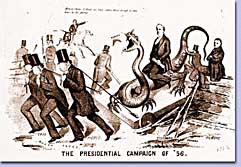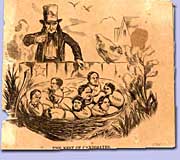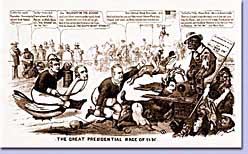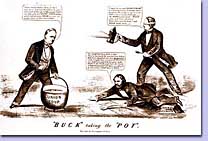On February 22, 1856, the American Party or "Know-Nothings" (with origins as a secret fraternal order, members professed to "know nothing" when asked about their party) began their convention in Philadelphia, with delegates from 27 states. It saw an opportunity to gain widespread political appeal and support for its nativist doctrine by reconfiguring itself as a political shelter for aimless Whigs. The party also hoped to achieve its first victory by characterizing itself as the party of unity and compromise. However, vacillation over the key issues driving the election, including the extension of slavery and a proposed resolution to the "miniature civil war" unfolding in Kansas, eventually led to the breakdown of the party. Delegates from New England, Pennsylvania, Ohio, Illinois, and Iowa bolted from the convention, eventually offering their support to the Republicans. Despite a party now dominated by Southern states, the Know-Nothings did nominate former Whig President (and New Yorker) Millard Fillmore as their candidate.
|
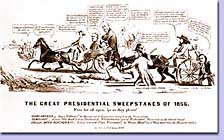
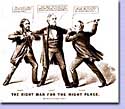
|
|
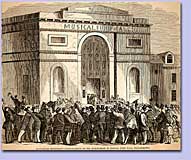
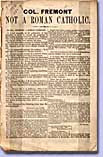


|
On June 17, 1856, the first Republican national nominating convention began its meeting at Musical Fund Hall, five blocks directly east of the Historical Society. As with the "Know-Nothings," the 558 Republican delegates hoped to fill the political void created by the demise of the Whig Party in the early 1850s. Supporters of the party consisted of a disparate mixture of political factions, including party-less Whigs, Free-Soilers, disaffected Democrats, anti-slavery activists, and, eventually, Know-Nothing defectors. By uniting under one political principle--ending the extension of slavery into western territories--the Republicans were able to bring together a cohesive and strong opposition to the Democrats. Only 43 years old when nominated, John C. Frémont characterized the young, energetic spirit of the new Republican Party. He had gained widespread popularity as an explorer of the western frontier. The Republicans summed up their platform in their slogan: Free Soil, Free Speech, Free Men, Frémont |


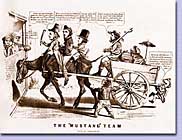
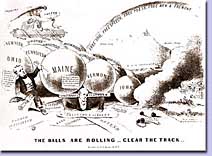
|
